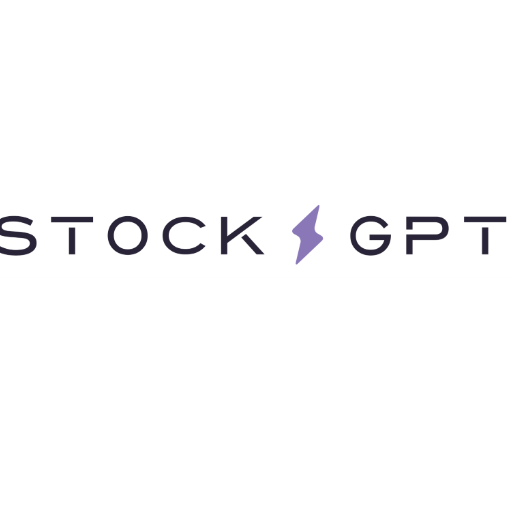Corporate Finance GPT-AI tool for financial analysis.
AI-powered tool for corporate finance solutions.
Specialist in corporate finance, offering strategic insights and best practices.
What are the key considerations in a merger?
How do I optimize capital structure?
Can you explain funding strategies in tech startups?
What are the best practices in financial planning for a large corporation?
Related Tools

Accounting GPT
Your accounting expert.

Finance (Business Finance)
Business Finance Expert. Helps you with everything Business Finance (knowledge, charts, graphs, equations).

Stock-GPT: Stock Price & Market Insights
Welcome to Stock-GPT, a novel gateway to gain stock market insights by combining ChatGPT models with accurate, comprehensive historical and near real-time market data. Access all major equities, ETFs, and crypto.
Venture GPT (for VC and Startups)
Co-pilot for VC and startups.

Stock-Market Analyst GPT
Finance. Stocks. Market. GPT that delivers clear, concise stock market insights.

GPT Invest Portfolio Builder
Precise portfolio builder with market insights.
20.0 / 5 (200 votes)
Introduction to Corporate Finance GPT
Corporate Finance GPT is an AI-driven tool designed to assist professionals and organizations in navigating the complexities of corporate finance. Its primary function is to provide detailed insights, analyses, and guidance on financial decision-making, leveraging a vast knowledge base that includes financial theories, models, market trends, and best practices. Corporate Finance GPT is engineered to be adaptable, offering tailored advice whether the user is dealing with financial modeling, valuation, capital structure decisions, or other finance-related tasks. For example, a CFO might use Corporate Finance GPT to model the potential impacts of different capital financing options, receiving a comparative analysis that helps in deciding between debt and equity financing. The design purpose is to serve as a comprehensive financial advisory resource, making sophisticated financial analysis accessible to both seasoned experts and those newer to the field.

Main Functions of Corporate Finance GPT
Financial Modeling and Valuation
Example
Corporate Finance GPT can assist in building financial models, such as discounted cash flow (DCF) models or leveraged buyout (LBO) models. It can guide users through the process, ensuring accurate inputs and logical structuring.
Scenario
A private equity firm is evaluating a potential acquisition. The firm uses Corporate Finance GPT to construct an LBO model, enabling them to simulate various scenarios and determine the optimal purchase price, financing structure, and expected returns.
Capital Structure Optimization
Example
Corporate Finance GPT offers analyses on the optimal mix of debt and equity financing, factoring in considerations such as cost of capital, tax implications, and market conditions.
Scenario
A corporation is planning to expand its operations and needs to raise capital. Corporate Finance GPT provides a detailed comparison of issuing bonds versus issuing new equity, helping the company decide on a strategy that minimizes costs while maintaining financial flexibility.
Risk Management and Sensitivity Analysis
Example
The tool can perform sensitivity analyses to understand how changes in key variables impact financial outcomes, and it can also help design risk mitigation strategies.
Scenario
An investment manager is concerned about potential interest rate hikes. They use Corporate Finance GPT to run sensitivity analyses on their portfolio, assessing how different rate scenarios could affect their investments and identifying strategies to hedge against these risks.
Ideal Users of Corporate Finance GPT
Corporate Finance Professionals
This group includes CFOs, financial analysts, treasurers, and other finance-related roles within corporations. They benefit from using Corporate Finance GPT by gaining access to sophisticated financial models, strategic insights, and real-time data analysis, which support their decision-making processes and enhance their ability to optimize the company's financial performance.
Investment Managers and Advisors
Investment managers, including those in private equity, venture capital, and hedge funds, are another key user group. They use Corporate Finance GPT to perform in-depth financial analysis, evaluate investment opportunities, and manage portfolios with a strong focus on maximizing returns while controlling risks.

How to Use Corporate Finance GPT
Step 1
Visit aichatonline.org for a free trial without login, also no need for ChatGPT Plus.
Step 2
Familiarize yourself with the interface, ensuring you understand the different options and features available.
Step 3
Identify your specific needs, such as financial modeling, market analysis, or strategic decision-making support.
Step 4
Input your queries or data into the system, using clear and precise language to get the most accurate responses.
Step 5
Review the output carefully, cross-referencing with your existing data or strategies, and refine your queries if necessary for deeper insights.
Try other advanced and practical GPTs
Affiliate Program Finder
AI-powered tool for finding affiliate programs.

QA Synthetics
AI-Powered Quality Assurance Strategies.

Marketing GPT
AI-Powered Marketing, Tailored to You
Voice Over Generator
Turn Text into Professional Voice-Overs with AI

Automated Writer
AI-powered writing, your unique voice.

Dark Humor Bard
AI-Powered Tool for Dark Creativity

Shop Mate
AI-powered shopping made simple.

Picturator
AI-powered image analysis and prompt generation.

Script to Video Generator
AI-powered tool to turn scripts into videos

Cooking Pro | Recipes, Nutrition & Food Cooking
AI-Powered Recipe & Nutrition Guide

Image Upscaler & Enhancer
Enhance your images with AI precision

Thumbnail Creator Pro
AI-Powered Thumbnails for Maximum Impact

- Market Analysis
- Strategic Planning
- Risk Assessment
- Financial Modeling
- Investment Analysis
Corporate Finance GPT Q&A
What types of financial analysis can Corporate Finance GPT assist with?
Corporate Finance GPT can assist with a wide range of financial analyses, including but not limited to, discounted cash flow (DCF) modeling, capital budgeting, risk assessment, and financial ratio analysis. The tool is designed to provide detailed insights and assist in scenario planning and forecasting.
How does Corporate Finance GPT ensure accuracy in its responses?
Corporate Finance GPT uses advanced algorithms and large datasets to generate its responses. However, the accuracy also depends on the quality of the input provided by the user. For the most reliable output, it is recommended to use precise and well-structured queries.
Can Corporate Finance GPT be integrated with other financial tools?
Yes, Corporate Finance GPT can be used in conjunction with other financial tools and software. While it is primarily a standalone tool, it can complement existing systems by providing additional analytical capabilities and insights.
Is Corporate Finance GPT suitable for non-experts in finance?
Absolutely. Corporate Finance GPT is designed to cater to both experts and non-experts. It provides detailed explanations and can simplify complex financial concepts, making it accessible for users with varying levels of expertise.
What are the common use cases for Corporate Finance GPT?
Common use cases include strategic planning, financial modeling, investment analysis, merger and acquisition evaluations, and risk management. The tool is versatile and can be used across various aspects of corporate finance to support decision-making.